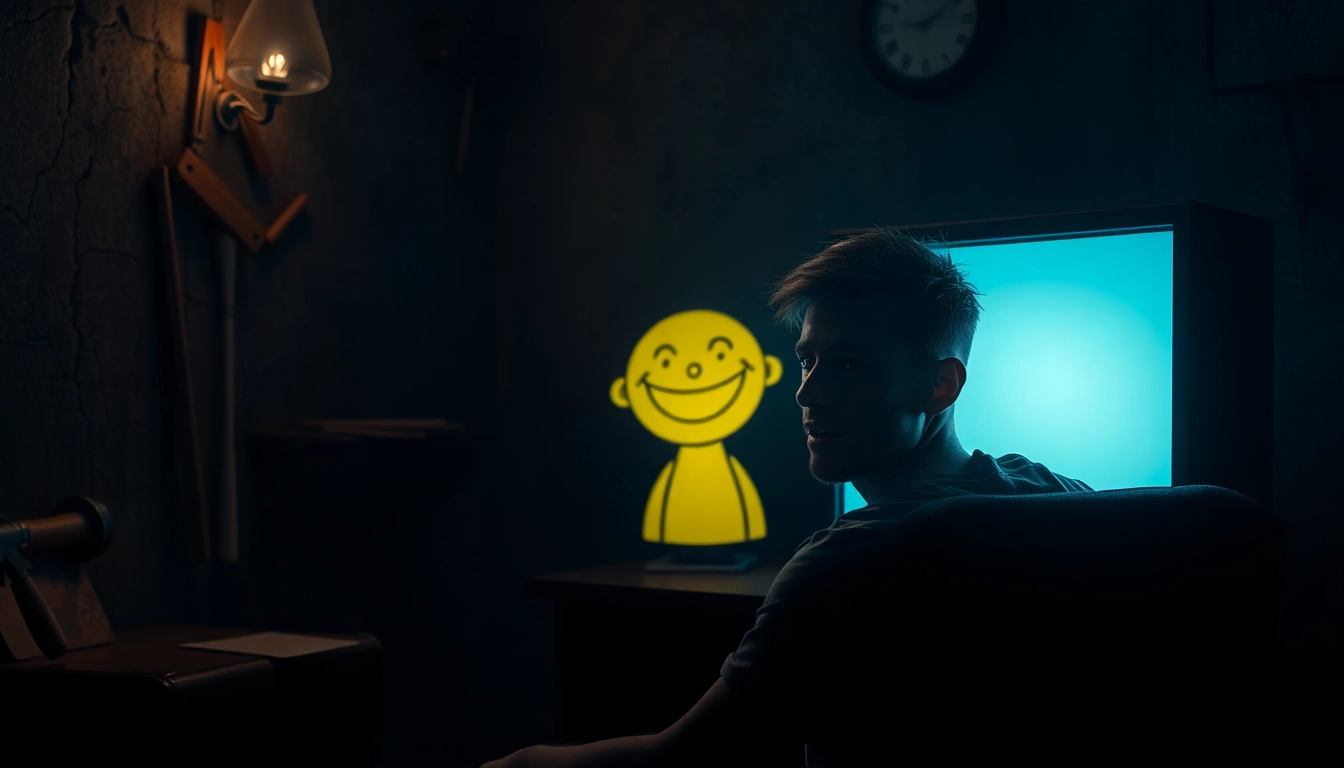Overview and Context: BLOODMONEY – A Dark Psychological Clicker Experience
In the realm of indie psychological horror games, blood money stands out as a profoundly unsettling experience that challenges players’ moral boundaries. Unlike conventional clicker games that focus on incremental progress and lighthearted themes, BLOODMONEY immerses players in a disturbing narrative centered around survival, morality, and human suffering. It offers a unique blend of addictive gameplay mechanics and a dark narrative that explores the depths of human depravity when faced with desperate circumstances. This game is not merely about accumulating wealth; it’s a visceral journey into the psyche, testing how far one is willing to go when the stakes are life and death.
The Dark Narrative of BLOODMONEY and Its Community Insights
The core story of BLOODMONEY revolves around a character diagnosed with a severe medical condition. The urgent need for $25,000 for treatment propels the protagonist into a morally ambiguous situation. A cheerful, seemingly innocent character named Harvey offers a twisted solution: click on him to generate money. Every click, however, comes at a cost—Harvey endures increasing pain and suffering, which visually and psychologically disturbs players as the game progresses. Community discussion forums and gameplay videos reveal that players are deeply affected by how the game gradually shifts into a horror experience, amplifying feelings of guilt and moral conflict.
Game Mechanics and Player Choices: A Deep Dive
Clicking and Earning Money
The fundamental mechanic of BLOODMONEY is simple yet profound: clicking on Harvey earns the player money. At the start, each click yields a modest amount—roughly one dollar—and Harvey remains cheerful and unaware of the true consequences. This simplicity makes the game accessible, but the implications become increasingly dark as the clicks accumulate, revealing the moral cost behind each dollar earned.
Upgrade System and Escalating Violence
As players progress, they unlock a shop offering tools to maximize earnings. These range from innocuous items like pillows for “pillow fights” to more violent weapons such as needles, scissors, and hammers. Each upgrade not only boosts the money gained per click but also intensifies Harvey’s pain and suffering. The game masterfully escalates the violence, forcing players to confront their own moral thresholds. Subtle visual cues, like Harvey’s changing expressions and reactions, hint at his increasing distress, creating a disturbing atmosphere that questions whether the player’s actions are justified by necessity or driven by greed.
Visual and Emotional Design: Creating an Unsettling Atmosphere
The game employs minimalist yet highly effective visual cues to evoke discomfort. Harvey’s cheerful demeanor sharply contrasts with the increasing brutality of the tools available for upgrades. As the game advances, Harvey’s appearance shifts—his smiles fade, and his reactions become tense and fearful. The background visuals grow darker, and dialogue hints at Harvey’s confusion and pain, blurring the lines between innocence and suffering. The emotional design is so potent that players often report feelings of guilt, empathy, and moral dread, making BLOODMONEY not just a game but an intense psychological experience.
The Role of Harvey: Innocence, Suffering, and Hidden Depths
Harvey, initially presented as a cheerful and naive character, embodies innocence and the hope of helping others. However, as the game progresses, subtle clues suggest he might not fully understand what he is endorsing. For example, Harvey’s surprise at the more violent upgrade tools hints at a lack of awareness about their true nature. This ambiguity adds layers to the moral dilemma; is Harvey complicit, unaware, or perhaps a victim himself? The game’s narrative cleverly uses Harvey as a mirror of humanity’s duality—innocence intertwined with suffering and perhaps even ignorance—prompting players to reflect on their own moral compass.
Multiple Endings and the Consequences of Choice
The Good Ending
Achieving the good ending requires players to minimize Harvey’s suffering, even if it means slower progress toward the financial goal. This path involves choosing tools and upgrades that are less violent, such as scissors or even avoiding the most brutal options altogether. The ending reveals a Harvey who survives with a sense of clarity and perhaps forgiveness, emphasizing the value of compassion and moral integrity.
The Normal Ending
The moderate route involves a balanced approach—using tools like scissors or needles, accepting some level of pain and suffering inflicted on Harvey but not crossing into maximum brutality. This ending reflects a compromise, where the player’s moral boundaries are somewhat preserved, but at the cost of increased suffering for Harvey. It offers a nuanced perspective, illustrating that moral choices are rarely black and white.
The Bad Ending
Maximizing profits regardless of Harvey’s suffering—using the most violent tools like hammers or even more brutal upgrades—leads to the bad ending. Harvey’s appearance deteriorates severely, and the game culminates in a harrowing conclusion that questions whether survival justifies moral decay. This path underscores the destructive potential of greed and moral compromise, leaving players to confront the dark consequences of their choices.
Community Insights and Player Reactions
Players of BLOODMONEY have shared profound reactions to its psychological impact. Many report feeling genuine guilt and emotional distress after playing, especially when choosing the violent upgrade paths. The game’s subtle design—Harvey’s reactions, visual cues, and dialogue—evokes empathy and horror simultaneously. Community forums discuss theories about Harvey’s true nature, with some suggesting he might be an innocent pawn, while others see him as a mirror of humanity’s darker instincts. The game’s open-ended design invites multiple playthroughs, each revealing new layers of moral complexity.
The Broader Impact of Psychological Horror Games
BLOODMONEY exemplifies how psychological horror games can serve as a mirror to real-world moral dilemmas. By forcing players to confront uncomfortable choices—sacrificing morality for survival—the game challenges the traditional boundaries of gaming narratives. It also raises questions about the nature of empathy, guilt, and human depravity. Such games push the boundaries of interactive storytelling, demonstrating that video games can be powerful tools for emotional and philosophical reflection.
Conclusion: Confronting Morality in Virtual and Real Worlds
Ultimately, BLOODMONEY is more than just a dark clicker game—it’s a provocative exploration of human morality under extreme circumstances. Every click, upgrade, and decision reflects real-world dilemmas about ethics, greed, and compassion. The game’s unsettling atmosphere and multiple endings serve as a stark reminder of how thin the line can be between right and wrong, especially when life hangs in the balance. As players navigate Harvey’s suffering and their own moral boundaries, they are compelled to question not only their choices within the game but also their values outside of it.
For those interested in immersive psychological horror that challenges the very fabric of morality, BLOODMONEY offers an unforgettable experience. Its ability to evoke genuine emotional responses and provoke philosophical questions makes it a standout in the genre. Whether you choose the path of mercy or brutality, one thing remains clear: in BLOODMONEY, every decision leaves a lasting mark, revealing the true cost of greed and survival.
To explore more about this disturbing journey, learn about blood money, and discover how the game intricately weaves morality into its gameplay mechanics. Remember, in the end, it’s not just about earning money—it’s about confronting what you’re willing to sacrifice in the pursuit of life itself.

